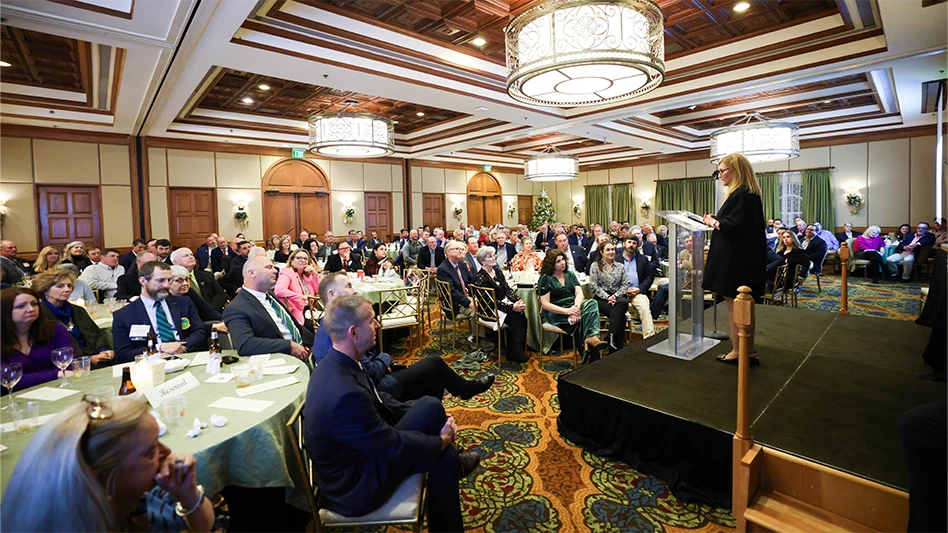.jpg) Brian Vinchesi Brian Vinchesi |
There is no doubt that a decoder/two wire system needs to be grounded well. Not that a field controller system doesn’t, but the decoder/two-wire systems are more sensitive due to the fact that electronic equipment is installed underground, where high voltages can be induced on the circuit by lightning. If the grounding is not adequate, then the system will be very susceptible to damage. A field controller system is also susceptible to damage, but the overall amount of damage would usually be less in a field controller system versus a decoder/two-wire system. Additionally, the odds of losing several holes or more at once are low in a conventional field controller system since the circuits are isolated in groups of sprinklers per controller. In a decoder/two wire system, everything is basically connected as one circuit, so a lightning strike can be devastating if the system is not properly grounded and protected. Therefore, a great deal of attention should be paid to grounding. A high percentage of the wire savings from a conventional system should be used to increase the lightning protection. Lightning protection should consist of multiple pieces of equipment – not just grounding rods. These include: Grounding Electrodes. Surge Suppression Devices. Cable Fuse Devices. Exothermic Welding Connectors. Shield Wires. Since many of these lightning protection devices are copper-based, they are expensive. The manufacturers have recommendations as to what degree of protection should be employed on their decoder/two-wire control systems, but many times additional lightning protection and surge suppression devices are eliminated or left off the design for cost-cutting, or to look less expensive than the competition or a field controller system. Based on experience, some designers specify and recommend additional or more elaborate protection than is required by the manufacturer, so there will be fewer issues if lightning strikes or other electrical problems occur. I would argue that when properly designed and installed, the type of control system, in terms of longevity and reliability, is the same. You decide what control system is the best fit for you and for your golf course. This decision includes not only how you manage the irrigation system but also your budget for the cost of the installation itself and your maintenance personnel in terms of how much time they have to work on any irrigation control system problems. Do your homework, sort through the rhetoric and pick the system that best works for you. |

Explore the March 2011 Issue
Check out more from this issue and find your next story to read.
Latest from Golf Course Industry
- Advanced Turf Solutions and The Aquatrols Company release soil surfactant
- Heritage Golf Group acquires North Carolina courses
- Editor’s notebook: Green Start Academy 2024
- USGA focuses on inclusion, sustainability in 2024
- Greens with Envy 65: Carolina on our mind
- Five Iron Golf expands into Minnesota
- Global sports group 54 invests in Turfgrass
- Hawaii's Mauna Kea Golf Course announces reopening





